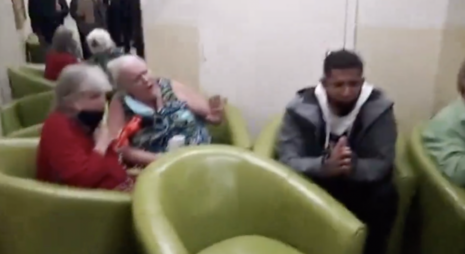Paulette Harlow, a 75-year-old woman, has been sentenced to two years in prison by Judge Colleen Kollar-Kotelly for praying outside a Washington D.C. abortion clinic. The sentencing, which took place on May 31, has ignited a heated debate about the application of the Freedom of Access to Clinic Entrances (FACE) Act and the rights of pro-life activists.
Harlow was arrested along with eight other pro-lifers on October 22, 2020, while visiting the Washington Surgi-clinic. The group sat outside the clinic doors, singing hymns and praying for the unborn babies and their mothers. The FACE Act, under which they were convicted, prohibits “violent, threatening, damaging, and obstructive conduct intended to injure, intimidate, or interfere with the right to seek, obtain, or provide reproductive health services.”

During the sentencing, Harlow’s husband pleaded for mercy, expressing concern that his wife might die alone in prison due to her age and health issues. However, Judge Kollar-Kotelly seemed unmoved by the plea, allegedly stating that Harlow could “make an effort to remain alive” as it is a “tenet of [Harlow’s] religion.”
Other pro-life activists who participated in the protest at the Washington Surgi-clinic have also been charged and sentenced. Lauren Handy, 30, received a 57-month prison sentence and three years of probation for linking herself with fellow pro-lifers and engaging in prayer and hymn-singing. Other individuals sentenced include Josh Darnel (34 months), Jean Marshall (24 months), Heather Idoni (24 months), John Hinshaw (27 months), William Goodman (27 months), Joan Bell (27 months), and Herb Geraghty (27 months).

The case has sparked controversy, with some arguing that the sentencing is disproportionate and infringes upon the right to peaceful protest and religious freedom. Critics have pointed out that protesters for other causes, such as animal rights, Palestinian rights, Black Lives Matter, climate change, and LGBTQ+ issues, are often celebrated rather than incarcerated for their actions.

The sentencing of Paulette Harlow and her fellow pro-life activists has reignited the ongoing debate about the balance between the right to protest and the protection of access to reproductive health services. As the case continues to generate discussion, it has become a focal point for those who believe that the justice system is being influenced by a left-leaning agenda.
The case is likely to have far-reaching implications for the future of pro-life activism and the interpretation of the FACE Act. As the controversy surrounding the sentencing unfolds, it remains to be seen how the public and legal community will respond to what many perceive as a violation of the fundamental right to freedom of speech and religious expression.


